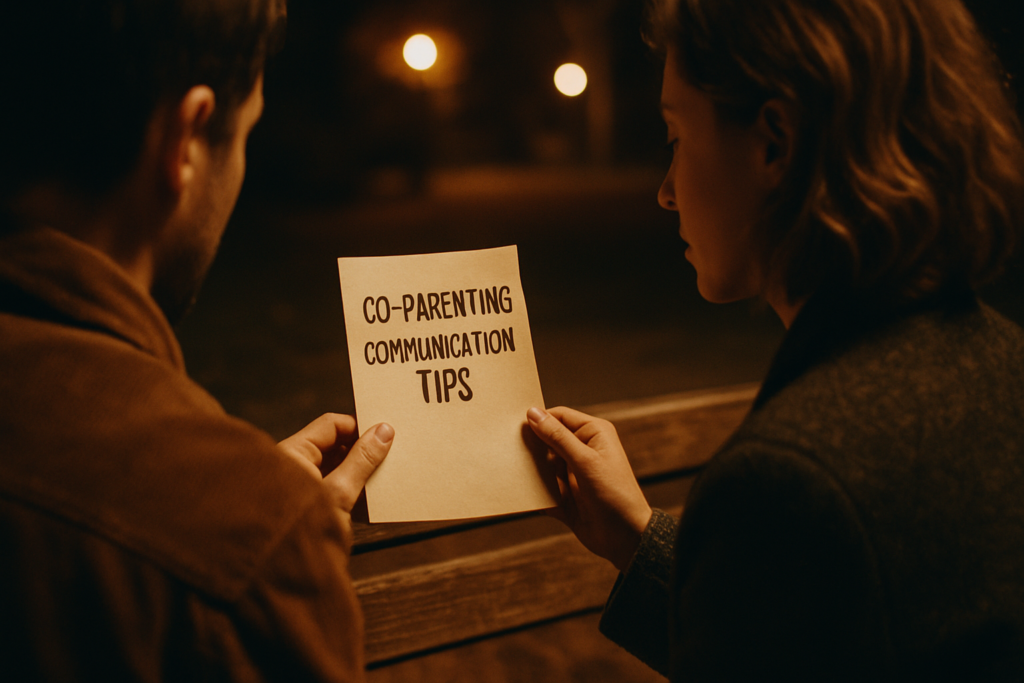Start With Boundaries That Actually Work
Boundaries aren’t optional with an ex they’re oxygen. Whether you’re sharing custody, financial responsibilities, or just space in a shared digital calendar, clear boundaries help keep chaos at bay. They define what’s okay, what’s not, and what needs no conversation at all. Without them, miscommunication creeps in. Resentment follows.
One of the biggest traps? Setting a boundary you don’t enforce. Telling your ex you only want to text about the kids, then responding to late night venting messages, sends mixed signals. Another pitfall: trying to be the “cool” ex who keeps everything relaxed. Good intentions, bad results. Boundaries with no structure invite crossed lines.
To protect your peace, start simple. Be clear on what matters to you how and when you’ll communicate, what topics are off limits, when you need space and say it calmly. Then follow through. You don’t need drama to hold a line. You just need consistency. Tight boundaries aren’t mean they’re maintenance. And the less confusion there is, the less opportunity for conflict.
Keep It Focused and Functional
Communicating with your ex doesn’t need to be warm and fuzzy it just needs to work. Keep the focus on what actually matters: co parenting logistics, scheduling, and financial responsibilities. It’s not about revisiting old arguments or venting feelings. There’s nothing to win there, and usually a lot to lose.
One of the biggest traps? Letting the conversation drift into personal territory. If the topic isn’t about the kids or shared responsibilities, steer it back. Be brief, be direct, be done. If they take a detour, don’t follow. Don’t match their energy replace it with clarity instead.
Neutral language helps. Say, “Let’s look at the calendar and lock down drop off times,” instead of “You always forget the schedule.” The point is to move the conversation forward, not drag it out. Keep your tone steady and your words clean.
Need more structure? This guide breaks it down further: civil talks with ex.
Choose the Right Method of Communication
Not every mode of communication works for every situation. Texting is great for quick, logistical updates “Practice moved to 5” or “I’ll be there at 3.” But when tone can be misunderstood or tension is high, a written message isn’t always your best option. In those cases, a short call can iron things out faster and reduce unnecessary back and forth. On the flip side, email is best when details matter and you need a clear record of who said what and when.
When things get heated or legally sensitive, having a written trail isn’t just smart it’s necessary. Emails and texts create a timestamped log that helps avoid confusion later. They also give you time to cool down and choose words more carefully, which can avoid escalation.
For routine communication that keeps everything organized, many co parents are turning to purpose built apps. Tools like OurFamilyWizard, TalkingParents, and 2Houses are designed to manage calendars, message histories, expenses, and more all in one place. It cuts down on scattered conversations and keeps things transparent. Less guesswork means fewer fights.
Pick your method based on what you’re saying and how things are going emotionally. It’s not about being perfect it’s about being clear and strategic.
Watch Your Tone It’s Everything

What you say has weight but how you say it often decides whether things spiral or stay steady. When tensions run high, tone becomes the real message. You can deliver the exact same words and get two completely different outcomes, depending on your delivery.
Here’s the tricky part: hostile doesn’t have to sound loud. Sometimes it’s passive aggressive. Or overly formal with a sharp edge. The goal is neutral not cold, not sweet just clear and steady.
Examples that work:
Instead of: “You never told me that.”
Try: “I must have missed that detail can you resend it?”
Instead of: “You’re always late.”
Try: “If pickup runs late again next week, we’ll need to adjust the plan.”
Instead of: “This is ridiculous… again.”
Try: “Let’s troubleshoot this. What’s a workable fix?”
Tone isn’t about being passive, it’s about owning your words without adding fire. Practicing emotional detachment calm delivery, no loaded jabs pays off long term. It models maturity, disarms defensiveness, and makes it easier to stay focused on what matters: your boundaries, your kids, your peace.
Keep the Kids Out of It
It’s tempting to vent about your ex when you’re feeling hurt or frustrated but doing it in front of the kids breaks trust fast. Oversharing can pull children into adult issues they have no power to fix and no business carrying. They end up caught in the crossfire, feeling confused or like they have to pick sides. That’s not co parenting. That’s collateral damage.
Children need information shaped for their age, not unfiltered commentary. You don’t need to lie, but you do need to calibrate. Say just enough to help them understand what’s relevant to them like new routines or scheduling changes without dragging them into the emotional mess. Transparency should clarify, not complicate.
Lastly, if you and your ex can agree on even a minimum baseline, present it as a united front. You don’t have to like each other, but showing the kids you’re working together, even just on logistics, gives them some ground to stand on. Conflicting stories, angry side comments, or throwing each other under the bus only makes things worse. Kids need stability, not drama.
Pause Before You React
Defensiveness is automatic. A snappy text from your ex can feel like a grenade lobbed straight at your patience. But reacting without a pause often spirals things fast. Instead of hitting back, hit pause. Give it five minutes. Give it an hour. Whatever it takes to respond, not react.
One basic tool? Re read the message and ask yourself: What’s actually being said and what am I projecting onto it? Are you reacting to tone, or the words themselves? Sometimes clarity hides behind tone filters we apply from past baggage.
Try a gut check: How tense are your shoulders? Are you typing faster than usual? Stop. Step away. Review what you’re feeling before you say something you’ll regret or that fuels more drama.
If needed, write the message you want to send in your notes app first. Let it breathe. Come back later. Still feels necessary and measured? Fine. If not, refine.
These self checks turn tough conversations into simple logistics. It isn’t about being passive. It’s about staying clear eyed and in control.
Invest in Outside Help if Needed
Sometimes, trying to manage every co parenting challenge on your own just doesn’t cut it. That’s where outside help can make a serious difference. Co parent counseling isn’t just for high conflict situations it can be a game changer even when things are mostly civil. A skilled counselor helps both sides say what needs saying without turning conversation into combat. It’s not about winning; it’s about creating a sustainable rhythm for everyone involved, especially the kids.
Online mediation adds flexibility to that support. You don’t have to meet face to face to move forward. Remote sessions and communication coaching offer structured ways to resolve disputes, sort out routines, and stay accountable without dragging things out. These tools aren’t a sign of failure they’re a strategy.
If you’re looking for ways to level up your communication, here’s a related read worth checking out: civil talks with ex.
Wrap Up: Respect, Strategy, Consistency
Co parenting after a split isn’t about rekindling friendship. It’s about reaching a working truce functional peace so life stays predictable for everyone involved, especially the kids. You don’t need to like each other. You do need to be able to schedule a dentist appointment without it turning into a power struggle.
Consistency is the quiet force that builds trust over time. When your words match your actions, and you respond with the same tone and timing, you show you’re stable even if things are still tense. That predictability creates fewer flare ups and less anxiety, for both sides.
Keep things steady. Keep them simple. Stay calm, stay clear, and stay focused on the shared responsibilities. The rest doesn’t matter. Peace isn’t built on grand gestures. It’s built on simply not escalating.
Do that often enough, and even the messiest dynamics cool down. Not perfect but functional. That’s the win.



